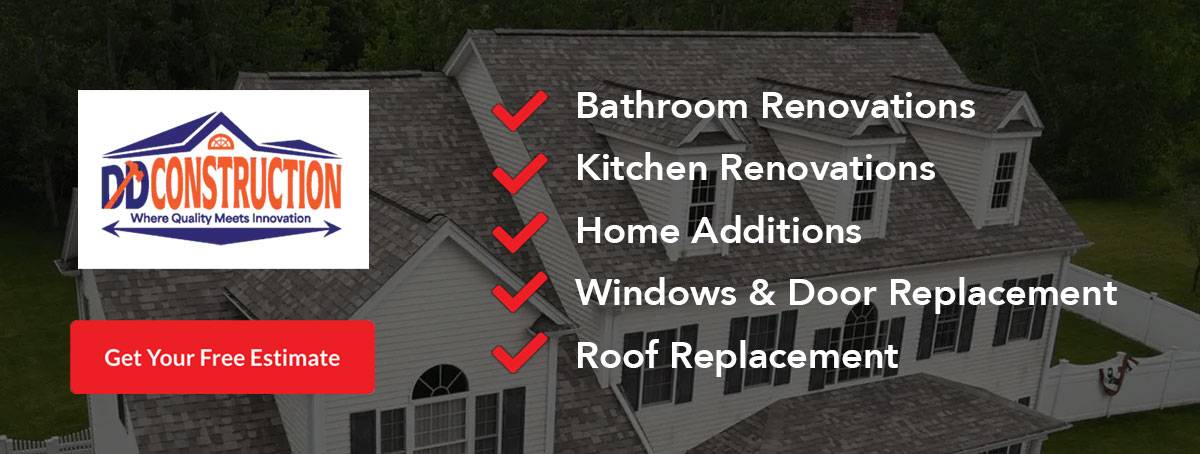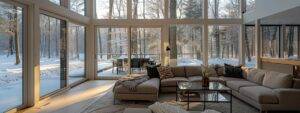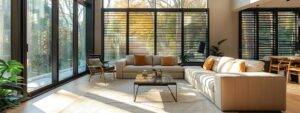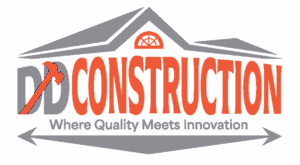Window replacement (dd construction) is one of the most impactful home improvement projects for Massachusetts homeowners who want to increase their property’s value, enhance energy efficiency, and improve overall comfort. Poor or outdated windows detract from a home’s curb appeal and energy performance, resulting in higher utility bills and diminished indoor comfort. Installing new, energy-efficient windows not only elevates your home’s aesthetic appeal but also reduces heating and cooling costs, minimizes external noise, and increases natural light. With Massachusetts’ diverse weather—from cold, snowy winters to humid summers—upgrading windows (dd construction ma) is vital for maintaining indoor comfort and sustainability.
Strict building codes and energy efficiency regulations mean that windows must meet high standards. Modern windows offer improved insulation and advanced technology that minimizes energy loss while boosting resale value. Energy assessments reveal that outdated windows often drain energy; thus, investing in high-quality replacement windows can deliver a substantial return on investment, especially when combined with available tax credits or rebate programs such as the Mass Save Program.
Professional window replacement also helps prevent structural issues like water leakage or drafts, and allows homeowners to customize window styles to suit their home’s architectural character. With a range of materials—from vinyl to wood and fiberglass—homeowners can select options that best balance durability, maintenance, and appearance.
This article examines the benefits of window replacement in Massachusetts, reviews the best window types and materials for local conditions, explains the professional installation process, discusses cost considerations and incentives, and reviews relevant building codes and regulations. By understanding these elements, Massachusetts homeowners can make informed decisions that enhance home aesthetics, energy efficiency, and long-term property value.
What Are the Key Benefits of Window Replacement for Massachusetts Homeowners?
Upgrading your windows offers benefits that go far beyond curb appeal. New windows improve overall home performance by reducing maintenance issues and enhancing energy efficiency, which in turn contributes to higher property value and improved living conditions.
How Does Window Replacement Increase Home Value?
Replacing windows is one of the best home improvement projects with excellent returns. New, modern windows appeal to buyers and lower utility bills with better insulation. Energy-efficient upgrades can increase resale value by up to 10%, especially in competitive Massachusetts markets that demand contemporary features. New windows eliminate drafts, reduce moisture intrusion, and refresh the home’s exterior, signaling to buyers that the property has been well maintained and updated with advanced technology. Many upgraded windows also qualify for state or federal tax credits, further enhancing their financial benefits.
What Energy Savings Can You Expect From Energy-Efficient Windows?
Modern windows use double or triple glazing, gas fills, and advanced coatings to reduce thermal loss and maintain steady indoor temperatures. In Massachusetts’ harsh winters and warm summers, replacing drafty windows with high-performance models can lower heating bills by up to 20% and cooling bills by up to 15%. Besides reducing energy bills, these windows lessen greenhouse gas emissions, aligning with programs like Mass Save while improving overall indoor comfort by eliminating cold spots and reducing noise.
How Does Window Replacement Improve Home Comfort and Noise Reduction?
New windows provide superior insulation from temperature extremes and external noise. With multiple layers of glass and insulating materials, modern windows minimize drafts and stabilize indoor climates, protecting furnishings from damage. They also reduce noise from busy streets or industrial areas, creating a more peaceful environment. For example, a Massachusetts suburb reported a 30% reduction in perceived noise and a 25% improvement in temperature stability, resulting in better sleep and overall satisfaction. Reduced reliance on HVAC systems further contributes to a sustainable, comfortable home.
A summary of comfort and noise reduction benefits includes: – Improved indoor temperature control – Superior soundproofing – Reduced drafts and cold spots – Less reliance on HVAC systems – Enhanced energy retention and sustainability
Which Window Types Are Best for Massachusetts Homes?
Choosing the right window type is essential for matching your home’s style, meeting energy performance standards, and complying with local regulations. Massachusetts homes often face unique challenges due to variable weather, historical architecture, and building codes.

What Are the Features of Double-Hung Windows?
Double-hung windows, with two vertically moving sashes, are a popular choice for Massachusetts homes. Their design allows versatile ventilation and easy cleaning, particularly with tilt-in sashes. Modern double-hung windows incorporate insulated glass and energy-efficient frames that help reduce exterior noise and air infiltration. They complement traditional New England styles while offering compatibility with various materials such as vinyl, wood, and fiberglass.
Key features include: – Dual sashes for effective ventilation– Tilt-in mechanism for easy cleaning – Availability in multiple materials – Enhanced energy efficiency with low-E coatings – Classic design that suits colonial and Cape Cod homes
How Do Casement Windows Enhance Ventilation and Style?
Casement windows, hinged on one side and opening outward, capture breezes effectively while providing a tight seal against drafts when closed. Their unobstructed glass maximizes natural light and enhances home security with multi-point locks. Casement windows offer a modern look and are a popular option in kitchens, bathrooms, and areas needing optimal ventilation.
Notable benefits include: – Excellent natural ventilation– Unimpeded views without muntins – Improved energy efficiency through tight sealing – Bright, spacious interiors from enhanced daylight – Customizable finishes in materials like vinyl and fiberglass
What Are the Advantages of Bay and Slider Windows?
Bay windows project outward, creating a small shelf or nook that adds interior space, natural light, and panoramic views. They are favored for living rooms and dining areas, providing a traditional yet elegant look. Slider windows, with horizontally moving sashes, suit openings where space is limited. They offer a modern, minimalist design, are low-maintenance, and ensure smooth operation while reducing air leakage.
Advantages include: – Bay windows add interior space and light – Slider windows are ideal for large openings and low-maintenance designs – Both types enhance curb appeal and offer energy-efficient features – Customizable options in various materials and finishes
The table below summarizes key attributes of popular window types:
| Window Type | Ventilation Benefits | Energy Efficiency Features | Aesthetic Appeal | Maintenance | Customization Options |
|---|---|---|---|---|---|
| Double-Hung | Adjustable airflow via dual sashes | Insulated frames, Low‑E glass | Classic and versatile | Easy tilt‑in cleaning | Custom finishes and hardware |
| Casement | Excellent breezeways | Tight sealing mechanisms | Modern and sleek | Low‑hassle; multi‑point locks | Various materials |
| Bay Windows | Expansive views, added space | Layered glass configuration | Traditional elegance | Moderate; requires cleaning | Built‑in seating, decorative trim |
| Slider | Continuous airflow | Reduced air leakage | Contemporary minimalist | Simple glide system | Custom sizes, colors |
What Window Materials Offer the Best Value and Durability in Massachusetts?
The choice of window materials impacts aesthetics, durability, energy efficiency, and maintenance costs. Massachusetts’ extreme weather conditions require materials that resist temperature fluctuations, moisture, and high winds.
Why Choose Vinyl Windows for Massachusetts Climate?
Vinyl windows, made from PVC, are popular in Massachusetts thanks to their excellent insulation, low maintenance, and resistance to moisture. Their multi-chambered design enhances energy efficiency, and they do not require painting. Vinyl windows are cost effective and perform consistently in fluctuating temperatures, making them an ideal choice for the local climate.
Advantages of vinyl windows include: – High energy efficiency and insulation – Resistance to moisture, rot, and corrosion – Low maintenance with no painting required – Affordable installation and long-term durability – Availability in many styles including double-hung, casement, and slider
What Are the Benefits of Wood Windows for Home Aesthetics?
Wood windows offer timeless beauty and a warm, natural look that is particularly valued in historic Massachusetts homes. They can be customized with stains and finishes to match various architectural styles. Although wood windows require more maintenance and typically have a higher upfront cost, their aesthetic appeal and ability to be refinished over time make them a worthy investment for preserving a home’s heritage.
Benefits include: – Natural beauty and warmth – Customizable finishes for unique style – Longevity with periodic refinishing – Good insulating properties when paired with modern glazing – High resale value for upscale properties
How Do Fiberglass Windows Combine Strength and Energy Efficiency?
Fiberglass windows are strong and lightweight, offering excellent durability and advanced energy efficiency. They maintain a stable seal across temperature extremes due to their low thermal expansion. Fiberglass windows permit larger glass panes with slimmer profiles, maximizing natural light while being low maintenance and resistant to warping, rotting, and fading.
Key benefits of fiberglass windows include: – Superior durability in extreme weather – Tight seals for enhanced energy efficiency – Low maintenance and resistance to common issues – Sleek, modern design with slimmer profiles – Longer lifespan and recyclable components
The table below summarizes a comparison of window materials:
| Material | Energy Efficiency | Durability | Maintenance | Aesthetic Appeal | Cost | Environmental Impact |
|---|---|---|---|---|---|---|
| Vinyl | High | Very Good | Low | Modern, versatile | Affordable | Moderate (recyclable) |
| Wood | Moderate‑High | Good (with upkeep) | High | Timeless, classic | Higher | High (if sustainably sourced) |
| Fiberglass | Very High | Excellent | Low | Sleek, contemporary | Moderate‑High | High (recyclable) |
Before replacing windows, homeowners should weigh these material characteristics against their specific needs and local climate to achieve optimal performance, energy savings, and property value.
How Does the Window Installation Process Work in Massachusetts?
Understanding the installation process helps homeowners prepare for a smooth project that meets local building standards. Professional installation in Massachusetts involves coordinated steps to minimize disruption while ensuring long-term performance.

What Are the Steps Involved in Professional Window Installation?
The installation process typically includes: – Initial Consultation: A certified installer assesses the current windows, architectural style, and selects the best replacement options considering energy efficiency and aesthetics. – Precise Measurement: Accurate measurements of window openings are taken, accounting for any wall irregularities. – Removal of Old Windows: Existing windows are carefully removed to avoid damage to surrounding areas. – Preparation of Openings: Insulation and weatherproofing are applied to prepare a snug fit for the new windows. – Installation: New windows are set in place with shims, secured according to manufacturer directions, and verified for level and plumb installation. – Sealing: Gaps are sealed with caulk and insulation. – Final Inspection: A thorough inspection ensures compliance with local codes and manufacturer warranty conditions, accompanied by homeowner guidance on care and maintenance.
How Long Does Window Replacement Typically Take?
A typical residential window replacement in Massachusetts takes between one and three days. For an average home with 10–15 windows, completion usually occurs within two full working days. Delays might occur due to repairs for rotted framing or weather conditions, but experienced contractors plan the work in phases to maintain access and transparency throughout the project.
What Warranties and Support Should Homeowners Expect?
Massachusetts homeowners can expect comprehensive warranties covering both product and installation. Manufacturers often provide up to 20-year warranties for defects, while contractors offer labor warranties ranging from one to five years. In addition, companies frequently offer follow-up services, annual maintenance checks, and detailed documentation to support warranty claims. This strong customer support ensures that windows continue to perform at peak levels over time.
A summary of warranty and support features includes: – Up to 20-year manufacturer warranties – 1–5 year labor warranties – Detailed installation documentation – Scheduled maintenance checks and dedicated support channels
How Much Does Window Replacement Cost in Massachusetts?
Cost is a critical factor in any home improvement project. In Massachusetts, the price of window replacement depends on various factors, and state-specific incentives like rebates and tax credits can help offset expenses.
What Factors Influence Window Replacement Pricing?
Key cost factors include: – Window Type: Double-hung, casement, bay, and slider windows differ in design complexity and cost. – Material: Vinyl is typically the most cost-effective, while wood and fiberglass are generally more expensive. – Size and Number: The overall cost scales with the number and dimensions of windows. – Labor Costs: Varies by region and contractor expertise. – Customization: Custom sizes, finishes, or additional features (low-E coatings, gas fills) can increase cost. – Structural Repairs: Additional costs may apply if modifications are needed.
Are There Massachusetts-Specific Rebates or Incentives for Energy-Efficient Windows?
Programs such as the Mass Save Program offer rebates, low-interest loans, and tax credits for energy-efficient upgrades. Homeowners may qualify for savings after a home energy assessment is conducted, and additional local utility incentives can further reduce costs. Proper documentation is generally required to claim these benefits.
How to Budget for Window Replacement to Maximize ROI?
To budget effectively: – Obtain multiple detailed quotes. – Use online window cost calculators. – Factor in permits, structural repairs, and energy assessments. – Explore financing options including low-interest loans and rebates. – Consider long-term energy savings and reduced maintenance costs.
A detailed table summarizing cost factors and potential savings:
| Cost Factor | Estimated Range | Potential Savings or ROI | Additional Notes |
|---|---|---|---|
| Window Price per Unit | $500 – $1,000+ | Increased home appraisal value | Varies by type and material |
| Labor Costs | Varies by contractor | Efficiency in installation | Often 20–30% of total cost |
| Energy Efficiency Upgrades | $50 – $200 per unit | Lower utility bills (15–20% reduction) | Enhancements like low‑E coatings boost savings |
| Permits and Energy Assessments | $200 – $500 | Code compliance | Required for state rebates |
| Rebates and Incentives | Up to $200 per window | Reduced net cost | Eligibility through programs like Mass Save |
| Maintenance Savings | $50 – $100 per year | Lower upkeep costs | New windows require minimal ongoing maintenance |
| Total Project Cost (average) | $8,000 – $15,000 | ROI in enhanced property value | Comprehensive budgeting ensures better ROI |
What Massachusetts Building Codes and Regulations Affect Window Replacement?
Massachusetts building codes ensure that window replacements meet high standards of safety, energy efficiency, and structural integrity. Compliance helps avoid fines and ensures safe, long-lasting installations.

What Are the Key Massachusetts Building Code Requirements for Windows?
Key requirements include: – Compliance with the Massachusetts Energy Code, ensuring minimum U-factor and solar heat gain coefficient (SHGC) ratings. – Egress requirements in sleeping areas for emergency exits. – Proper installation techniques ensuring a secure, weather-tight seal. – Use of materials that meet fire safety and durability standards. – Adequate ventilation as required, with full documentation and inspections.
How Do Building Codes Impact Window Selection and Installation?
Building codes influence: – The selection of energy-efficient windows featuring components like low‑E glass and insulated frames. – The adoption of approved installation methods to ensure tight seals and moisture protection. – Regulations that may limit certain design features in historic districts. – The requirement for permits and inspections during the installation process, ensuring safety and compliance.
Where Can Homeowners Find Official Massachusetts Window Replacement Guidelines?
Homeowners should consult: – The Massachusetts Board of Building Regulations and Standards website. – Local city or town building departments. – State energy programs like Mass Save. – Industry resources from window manufacturers and the National Fenestration Rating Council (NFRC). – Reputable contractors familiar with current codes and regulations.
How Can Massachusetts Window Solutions Help You Replace Your Windows?
Massachusetts Window Solutions (MWS) is a trusted local expert known for high-quality workmanship, efficient installations, and comprehensive customer service tailored to the Massachusetts market. Their deep understanding of local building codes, climate challenges, and energy-saving upgrades ensures successful window replacement projects.
What Makes Massachusetts Window Solutions the Trusted Local Expert?
MWS stands out because: – Their certified installers are well-versed in Massachusetts building codes. – They conduct thorough consultations, including detailed home energy assessments. – They partner with leading window manufacturers offering energy-efficient products. – They provide transparent, competitive pricing and dedicated post-installation support. – Their extensive portfolio, ranging from historic homes in Salem to modern residences in Boston, demonstrates versatility and commitment to excellence.
How Does MWS Customize Window Replacement for Your Home?
MWS offers personalized solutions to meet your home’s unique design, energy, and comfort needs. Their process includes: – Comprehensive consultations and precise measurements. – Recommendations based on your home’s orientation, architectural style, and local weather conditions. – Customizable options across window types and materials (vinyl, wood, fiberglass) along with tailored installation techniques. – Assistance with rebate and tax credit documentation, ensuring maximum benefits.
How Can You Request a Quote or Consultation From MWS?
Requesting a quote is straightforward: – Contact MWS via phone or through their online inquiry form. – Schedule a free, no-obligation consultation where a specialist measures your windows and performs a home energy assessment. – Receive a detailed, transparent quote outlining costs for materials, labor, permits, and any additional services. – Discuss any specific customization or repair needs and confirm the timeline and installation dates. – Benefit from post-installation support and comprehensive warranty documentation.
Frequently Asked Questions
Q: What are the primary benefits of replacing old windows with energy-efficient models in Massachusetts? A: Upgrading to energy-efficient windows reduces energy consumption and utility costs by minimizing heat loss in winter and heat gain in summer. These windows improve insulation and comfort, lower utility bills, reduce noise, and boost home resale value. They also contribute to sustainability by lowering greenhouse gas emissions.
Q: How do building codes in Massachusetts affect the window replacement process? A: Massachusetts building codes require that windows meet specific energy performance and safety standards, including mandatory U-factor and SHGC ratings and proper egress in bedrooms. These codes necessitate the use of approved installation methods and permits, ensuring that window replacement projects comply with state regulations and safety requirements.
Q: What factors should I consider when choosing between vinyl, wood, and fiberglass window materials? A: Consider the distinct advantages of each material. Vinyl windows are low maintenance, highly energy efficient, and cost effective. Wood windows offer classic aesthetics and customizable finishes but require more upkeep. Fiberglass windows provide excellent durability and energy performance with a sleek, modern design. Your choice should reflect your home’s style, budget, and maintenance preferences.
Q: Are there any financial incentives available for window replacement in Massachusetts? A: Yes. Programs such as the Mass Save Program and other local incentives offer rebates, tax credits, and low-interest loans for energy-efficient window replacements. These benefits, often contingent on a home energy assessment, can help reduce the overall cost of your project.
Q: How long does the entire window replacement process typically take, and what should I expect during installation? A: Most window replacement projects in Massachusetts take one to three days, depending on the number of windows and project complexity. The process typically includes a consultation, precise measurements, removal of old windows, installation of new windows with insulation and sealing, and a final inspection with detailed documentation and warranty support.
Q: What supports does Massachusetts Window Solutions offer during and after the installation process? A: Massachusetts Window Solutions provides personalized consultations, detailed quotes, energy assessments, and custom installation services. They offer robust post-installation support, including annual maintenance checks and comprehensive warranties covering both product and labor, ensuring lasting performance and customer satisfaction.
Q: How do I ensure that my windows are compliant with local building codes and energy efficiency standards? A: Work with certified contractors experienced in Massachusetts building codes. They will perform a thorough home energy assessment, use approved installation methods, secure necessary permits, and follow official guidelines from the Massachusetts Board of Building Regulations and Standards, ensuring full compliance and performance.





